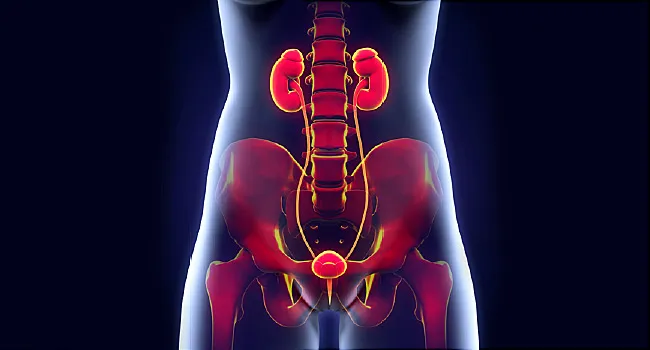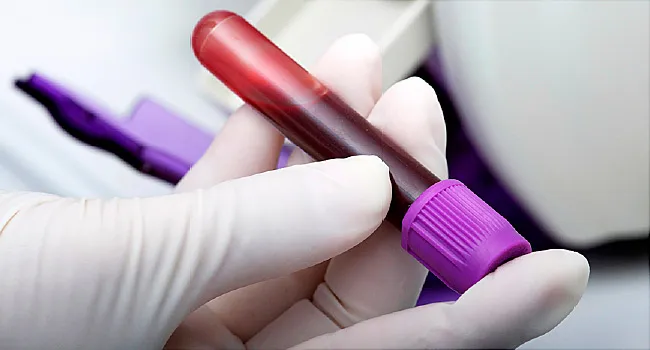|
Cholesterol Meds May Not Help Ward Off Dementia
https://ift.tt/2VsVfjt  WEDNESDAY, Feb. 27, 2019 (HealthDay News) -- While effective at cutting heart risks, blood pressure and cholesterol drugs may not help preserve seniors' brain health, new research finds. That conclusion came from the tracking of more than 1,600 men and women in 21 countries. Over an average span of nearly six years, all of the seniors took different combinations of drugs to lower blood pressure and/or statins to control high cholesterol. All took memory and thinking tests at the start and end of the study, the Canadian researchers said. The result: None of the drugs appeared to have any impact on long-term mental declines. Study author Jackie Bosch said her team was not really surprised by the findings. She is an investigator at the Population Health Research Institute and an associate professor in the School of Rehabilitation Science at McMaster University in Hamilton, Ontario. Why no surprise? On the one hand, Bosch noted that "there have been few studies to demonstrate an effect of blood pressure-lowering on cognitive decline." At the same time, "there have not been [any] studies to show a protective effect" linked to statins, with some prior research having raised "concerns, based on observational data, that statins [may even] cause memory loss," she added. On the bright side, "results actually confirm that there is no greater cognitive decline in those taking statin compared to placebo," Bosch said. "So, no effect is actually reassuring in this case." Worldwide, roughly 1 in 10 individuals over the age of 60 suffer from some degree of thinking impairment, the investigators noted. Prior research has suggested that living with uncontrolled high blood pressure and/or high cholesterol during middle age may raise the long-term risk for developing thinking declines. Still, research has been mixed as to whether that risk can be limited by taking drugs to control heart disease risk factors. In the latest study, published online Feb. 27 in the journal Neurology, the participants were an average age of 74, while 6 in 10 were women. Just under half (45 percent) had high blood pressure, and all were believed to face a moderate risk for developing heart disease. Health via WebMD Health https://www.webmd.com/ February 28, 2019 at 12:40PM
0 Comments
If You're Struggling With Pull-Ups, These Are the 16 Exercises You Need to Master
https://ift.tt/2tFTB2e 
In my opinion, pull-ups are one of the hardest moves to master. They require upper-body strength (specifically from your back muscles and shoulders), control, and lots of mental strength. To help you reach your goal of learning how to do pull-ups, I created a guide of moves you should start doing to build an upper-body strength foundation. The dumbbell exercises will help you build upper-body strength; you should also continue doing other upper-body exercises, like push-ups and triceps extensions. The pull-up variations will help you become familiar with the movement pattern and break down each portion of a pull-up. If you're feeling tempted to do all these exercises together in one workout, don't; you'll be extremely sore if you do. Instead, begin to incorporate these exercises into your strength programs. You can add them to an upper-body workout with pushing movements, like push-ups and the bench press, and you can also add them to total-body workouts with pushing exercises, like squat variations and lunges. Ahead are 16 exercises that will help you finally master pull-ups. Health via POPSUGAR Fitness https://ift.tt/2mWxwLI February 28, 2019 at 12:39PM
Study: Seniors With UTIs Need Antibiotics Fast
https://ift.tt/2UeADeC  THURSDAY, Feb. 28, 2019 (HealthDay News) -- For older adults with a urinary tract infection (UTI), antibiotic treatment should begin immediately to prevent serious complications, a new British study finds. Delaying or withholding antibiotics in this age group can increase the risk of bloodstream infection (sepsis) and death, researchers reported Feb. 27 in the BMJ. The findings suggest that doctors should "consider early prescription of antibiotics for this vulnerable group of older adults, in view of their increased susceptibility to sepsis following UTI and despite a growing pressure to reduce inappropriate antibiotic use," Paul Aylin and colleagues said in a journal news release. Aylin is a professor of epidemiology and public health at Imperial College London. UTI is the most common bacterial infection in older patients. But concerns about antibiotic resistance have led to reductions in antibiotic use in England, the study authors noted. For the study, the researchers analyzed data on more than 300,000 urinary tract infections among more than 150,000 patients aged 65 and older, between 2007 and 2015. Of those patients, 87 percent were prescribed antibiotics on the day of diagnosis, 6 percent received a prescription within seven days, and 7 percent did not take antibiotics, according to the report. The patients were tracked for 60 days after their diagnosis. After accounting for other factors, the investigators found that sepsis and death rates were much higher among patients with no antibiotics or delayed prescriptions, compared with those who received immediate prescriptions. On average, for every 37 patients not given antibiotics and for every 51 patients with delayed antibiotic treatment, one case of sepsis would occur that would not have occurred with immediate antibiotic treatment, the study authors said. However, because this was an observational study, it cannot prove cause and effect. The researchers also found that hospital admission rates were 27 percent among patients with no and delayed prescriptions, compared with 15 percent among those with immediate prescriptions. Older men, especially those over 85, and those living in poorer areas had the highest risk of problems from no prescriptions or treatment delays, the findings showed. Writing in an accompanying journal editorial, Alastair Hay, of the University of Bristol in England, suggested that further research is needed "to establish whether treatment should be initiated with a broad- or a narrow-spectrum antibiotic, and to identify those in whom delaying treatment [while awaiting test results] is safe." Health via WebMD Health https://www.webmd.com/ February 28, 2019 at 11:36AM
Could Blood Tests Replace Surgical Lung Biospies?
https://ift.tt/2tHrHms  For the study, Papadimitrakopoulou and her colleagues used Guardant360 to identify mutant genes in the blood of nearly 300 patients. Specifically, the tests were focused on seven "biomarkers" in blood samples -- tumor-specific gene mutations that can help identify subtypes of lung cancer. The Guardant360 test also looked for one biomarker -- called KRAS -- that helps predict a cancer patient's prognosis, the research team said. The blood test seemed to outperform standard tissue biopsy. While the standard surgical biopsy found at least one marker predictive of lung cancer in 60 patients, the blood test spotted it in 89 patients, the findings showed. Drugs that target many of these lung tumor gene mutations are already approved by the U.S. Food and Drug Administration, the researchers noted. Among the more than 190 patients who did not show the presence of one of the seven genetic tumor biomarkers, testing was often still able to spot the KRAS prognostic biomarker, the study team said. Again, the blood test beat tissue biopsy in this regard: The Guardant360 test spotted the KRAS biomarker in 92 patients, compared with 24 patients who underwent standard biopsy. Still, the new study was limited in two ways. First, Guardant360 results weren't compared to the results of the very latest gene-based surgical biopsy analyses. And secondly, the results apply only to the Guardant360 test -- not to other liquid biopsies already out there. One lung cancer specialist was still heartened by the results, however. "For years, we have been doing surgical biopsies, but over the last few years there's been a recognition that this is more a 'molecular disease,' governed by [gene] mutations," said Dr. Richard Lazzaro, chief of thoracic surgery at Lenox Hill Hospital in New York City. It's also been known that cancer cells can shed their DNA into the blood, he said. "If you can make diagnosis and treating decisions and save time, that's outstanding for patient care," Lazzaro said. Effective treatment, delivered sooner after diagnosis, should improve survival, he added. Already, liquid biopsies are often being used in tandem with surgical biopsies, Lazzaro noted. Health via WebMD Health https://www.webmd.com/ February 28, 2019 at 11:36AM
Danger Abounds When Meds and Your Genes Don’t Mix
https://ift.tt/2GPUDBl  Karen Daggett, Frazee, MN. Mary Relling, PharmD, chair, pharmaceutical sciences, St. Jude Children’s Research Hospital; team leader, Clinical Pharmacogenetics Implementation Consortium. Jennifer Hockings, PhD, PharmD, pharmacogenomics clinical specialist, Genomic Medicine Institute, Cleveland Clinic. Tracy Glauser, MD, co-director, Genetic Pharmacology Service, Cincinnati Children’s Hospital. The Journal of Molecular Diagnostics: “Preemptive Pharmacogenomic Testing for Precision Medicine: A Comprehensive Analysis of Five Actionable Pharmacogenomic Genes Using Next-Generation DNA Sequencing and a Customized CYP2D6 Genotyping Cascade.” FDA.gov: “Table of pharmacogenomics biomarkers in drug labeling.” Office of Disease Prevention and Health Promotion: “Adverse drug events.” Stanford University: “Understanding genetics.” University of Utah: “Observable human characteristics.” National Library of Medicine, Genetics Home Reference. Medical Genetics Summaries: “Tamoxifen therapy and CYP2D6 genotype.” PharmGKB: “Very important pharmacogene: HLA-B.” Mayo Clinic: “Stevens-Johnson Syndrome.” F1000 Research: “Toxic epidermal necrolysis.” Frontiers in Genetics: “HLA-B allele and haplotype diversity among Thai patients identified by PCR-SSOP: evidence for high risk of drug-induced hypersensitivity.” Clinical Pharmacogenetics Implementation Consortium. Health via WebMD Health https://www.webmd.com/ February 28, 2019 at 11:22AM
23 Gluten-Free Desserts That Might Just Be Better Than the Real Thing
https://ift.tt/2IJcUC2 
Dessert is one of life's great joys, and you shouldn't have to miss out even if you're gluten-free. So we're here to help you out, with 23 gluten-free desserts that will satisfy your sweet tooth. Think decadent brownies, classic birthday cake, and yummy gummy candy. It's all here, and it's all on Amazon! Health via POPSUGAR Fitness https://ift.tt/2mWxwLI February 28, 2019 at 10:59AM
A Complete Guide For Women Who Want to Lose Weight With Intermittent Fasting
https://ift.tt/2EiHg91 
Intermittent fasting (IF) has been shown to help with weight loss, boost immunity, and even prevent disease, but before you dive in, you should know that IF may affect women's bodies differently from men's, and adjusting your plan for those factors could be the key to reaching whatever goals you've set for yourself. Before we get into that, let's go back to basics. IF isn't so much a diet as a lifestyle. Rather than eliminating specific foods from your diet or cutting calories, you simply reduce the window in which you eat during the day. There are several methods for doing this, including the 12:12 ratio - eating for 12 hours, then fasting for 12 hours overnight - which is considered best for beginners. Stricter plans include 14:10 (eating for 10 hours) and 16:8 (eating typically from noon to 8 p.m.). Liz Josefsberg, an NASM-certified personal trainer and weight-loss and nutrition expert for The Vitamin Shoppe, explained that this is done to help the body repair cells and aid hormone levels to access stored fat more easily. Related: These Small Habits Are Scientifically Proven to Help You Lose Weight So, How Is Intermittent Fasting Different For Women?"There is some research that suggests that fasting may not be as effective or beneficial for women as men," Liz told POPSUGAR. "This is because women's bodies are very sensitive to calorie restriction." A study published in Obesity Research found that some women may actually have worse glucose tolerance after doing IF than men, and research in the Journal of Endocrinological Investigation showed that a disruption in the release of reproductive hormones can occur during a low-calorie diet, resulting in hormonal imbalances and an unpredictable menstrual cycle. But that doesn't mean IF is off the table entirely, Brittany Michels, a registered dietitian for The Vitamin Shoppe, told POPSUGAR. "Women tend to find more success and less hormonal effects by following shorter fasting windows, such as 12 to 14 hours," she said. Related: 6 Benefits of Intermittent Fasting, Because Weight Loss Is Just the Start How Can You Practice Intermittent Fasting Safely?First, assess your stress levels. "The act of fasting is additional stress on the body, which can cause negative effects," Brittany said, including symptoms like missed periods. "Those who have started a fast and begin to notice signs of hormonal imbalance should modify or stop fasting. Modification could mean anything from increasing the daily eating window to only fasting one day per week." To start, you might try a 12:12 plan and work your way up to 16:8 - skipping breakfast and restricting eating to an eight-hour window, which many of Brittany's clients find easy to follow. If shedding pounds is the goal, eat the fewest number of calories you'd need to maintain your weight during those eight hours (also known as maintenance calories). If you simply want to be healthier, aim to make up for that missed meal during this window, even if that means going over your maintenance calories. And remember to take into account your lifestyle before starting a plan. "Someone who works from 12 p.m. to 8 p.m. with one 30-minute meal break wouldn't be the best candidate for a 16:8 IF window," Brittany said. "They'd probably find more success on a 13:11, as they'd be able to eat breakfast before work and lunch at work." Whatever your plan, start slowly. Liz suggests pushing eating back by an hour every two to three days until you find the perfect ratio. "When you're eating, limit carbs and push meals more toward high amounts of healthy fat and protein," she said. Health via POPSUGAR Fitness https://ift.tt/2mWxwLI February 28, 2019 at 10:43AM
Why Do Some Kids With Eczema Get Food Allergies?
https://ift.tt/2H842Dy By Robert Preidt HealthDay Reporter WEDNESDAY, Feb. 27, 2019 (HealthDay News) -- Researchers have added to a growing body of evidence that skin plays a major role in food allergies. Their study of 62 children with eczema found that those with food allergies had skin irregularities not present on others. Those irregularities included a lack of structural proteins needed to retain moisture and produce an effective skin barrier; increases in certain keratin proteins indicative of an immature skin barrier; and increased activation of type 2 immune genes, which are associated with allergic diseases. The findings suggest that individualized treatment might help protect some patients with eczema (atopic dermatitis) from food allergies, according to the study authors. "The skin of atopic dermatitis patients with food allergies show clear markers of a predisposition to allergic diseases and a faulty skin barrier," said lead author Dr. Donald Leung. "They suggest that personalized treatment of these children may reduce the risk of developing both atopic dermatitis and food allergies." Leung is head of pediatric allergy and immunology at National Jewish Health in Denver. Eczema affects up to 20 percent of children, causing dry, itchy and cracked skin. About 30 percent of kids with eczema develop food allergies. "The skin of atopic dermatitis patients loses water and dries out," Leung said in a news release. "It can crack like potato chips. Increasing evidence indicates that when food particles enter those cracks, they can promote the development of food allergies." The findings suggest eczema patients who develop food allergies are a "distinct subset," Leung said. "The first weeks after birth, when an infant goes from the watery environment of the womb to the dry air of the outside world, is particularly traumatic for an infant's skin. We believe early treatment to maintain moist skin and a healthy skin barrier is especially important for these patients," he said. The skin-testing technique used in this study may help identify infants who are at risk for food allergies and allow for preventive steps, Leung said. The study was recently published in the journal Science Translational Medicine. Health via WebMD Health https://www.webmd.com/ February 28, 2019 at 09:14AM
Wondering Why Your UTI Keeps Coming Back? 2 Doctors Explain What's Going On
https://ift.tt/2Ha3v47 
Urinary tract infection: three words people aren't so pleased to hear. Are they uncomfortable? Yes. Are they painful? Double yes. Are they common? Unfortunately, yes: one in three women will need antibiotic treatment for a UTI by age 24. We spoke to Vannita Simma-Chiang, MD, assistant professor of urology at Mount Sinai, and Adeeti Gupta, board-certified ob-gyn and founder of Walk In GYN Care, about why these infections keep coming back. First, What Causes UTIs, Again?Dr. Simma-Chiang explained, "I tell patients that we are at a constant battle with organisms that are trying to invade our bodies to find a place to live. Most of the time, our immune systems are able to fend off these organisms. Sometimes, when our immune systems are being challenged - we're sleep-deprived, have a common cold, are not eating healthy, are stressed out - these organisms can bypass our immune system and make a home in our bladders." She went on to say that women are at an "anatomic disadvantage" when it comes to UTIs because their urethra is short and in their introitus, "which is near the vaginal opening." Dr. Gupta said not drinking enough water is the most common cause, along with holding in urine. Sex also can lead to infection. Why Do Some Women Get a Lot of Them?If a woman gets two or more UTIs within six months, or three in a year, this is called a "recurrent UTI" or "recurrent cystitis." According to Dr. Gupta, "vaginal dryness after menopause can make you more prone to UTIs." Dr. Simma-Chiang said that some women who are sexually active tend to get more UTIs, and she also noted that research suggests these infections could run in families, though that research is far from conclusive. Both doctors told us that having kidney stones can make a woman more prone to recurrent UTIs as well. But both also stressed that if you do get a recurrent UTI, it doesn't necessarily mean you're more likely to get it again once you're healed. "If women take proper care of themselves, they can avoid recurrent UTIs," Dr. Gupta said. We'll talk about preventative measures later. What to Do If You Have a Recurrent UTISee a doctor (say it louder for the people in the back!). "If women get recurrent UTIs, they should see a urologist," Dr. Simma-Chiang said. "We can walk you through conservative measures such as behavioral changes, dietary modification, increasing fluids, and optimizing your bowel movements as a first step. If these measures don't work, we can move on to antibiotic or nonantibiotic options. Don't try to treat this on your own." She also named management strategies such as postcoital prophylaxis, which is when a woman takes one low-dose antibiotic right after sex to help prevent the UTI from progressing. "If you are young and healthy and notice that you get UTIs every time you have sexual intercourse, whether with a male or female," this might be a method for you, she said. Dr. Simma-Chiang continued, "If you are young and healthy and notice that you get UTIs with specific symptoms - suprapubic [lower abdomen] pain, urgency, frequency, burning on urination - you may be a candidate for self-start therapy." For this, a woman will take a "shortened course of antibiotics for three days instead of seven to 10 days, which is a full course." You're given a 30-day supply with refills, she said, so this "helps to decrease the burden" of going to get a urine culture and a prescription. "For postcoital prophylaxis and self-start therapy, you should be evaluated by a medical professional prior to starting, as we would like to exclude any other factors that might be causing recurrent UTIs," she noted. Dr. Gupta similarly said that in the event of a recurrent UTI, you should increase your water intake and see a doctor, who will most likely prescribe antibiotics. Over-the-counter treatment, she added, will not get rid of the infection "and will let the infection linger." (Note: Dr. Simma-Chiang did say that she sometimes prescribes Azo, an over-the-counter pain medication, to patients after a "really bad urinary infection just to take the edge off." She warned that you can only take it for up to three days because "it's hard on your liver.") Preventative Measures For UTIsDr. Gupta said that women need to take caution to avoid recurrent UTIs because "they can lead to an ascending infection, meaning the infection can go up to the kidneys if untreated, and you will need hospitalization if it's severe." She offered the following tips: "Drink plenty of plain water, avoid holding in urine, and take probiotics." Also, avoid panty liners "because they cause friction and vaginal irritation, which can cause urethral irritation and UTIs." We know what you're thinking: "What about cranberry pills and cranberry juice?" Dr. Simma-Chiang said that though the active ingredient in cranberry has been shown to prevent organisms from "binding to the urethral cells" and causing UTIs, that's only one way bacteria can invade. Cranberry pills, she explained, are not regulated by the FDA, meaning "we don't know what's in it and we don't know how effective it is because there have been no real, big studies." Some patients have told her that cranberry pills do work for them, but "we don't know who this is beneficial for." "Drink a lot of water, have good bowel movements, stay healthy, sleep a lot, manage stress, take care of yourself," Dr. Simma-Chiang advised. (You can find more tips on UTI prevention here.) Remember, she concluded: "When your immune system's down, that's when organisms will come and try to invade your urethra and your bladder." So try your best to take care of yourself, and go see a doctor if a UTI comes knocking. Health via POPSUGAR Fitness https://ift.tt/2mWxwLI February 28, 2019 at 07:20AM
I'm a Trainer, and These Are the 9 Ab-Strengthening Exercises Beginners Should Know
https://ift.tt/2Vs52q9 
There are a lot of things to learn if you're new to working out. For example: the importance of warming up and cooling down, how to choose your weights, and how to strengthen your core. No matter what your fitness goals are, you've got to have a strong core, because your core muscles stabilize your spine and pelvis, improve your posture, help you breathe, and prevent injury. Ahead, you'll find nine moves every beginner should master for core strength. If you also want to learn the fundamentals of strength training, try this four-week beginner workout. Health via POPSUGAR Fitness https://ift.tt/2mWxwLI February 28, 2019 at 06:39AM |
Archives
October 2020
Categories |








 RSS Feed
RSS Feed
